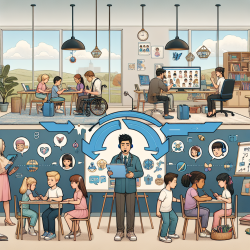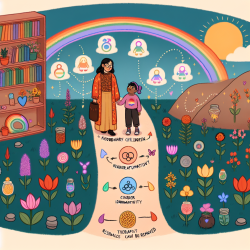Introduction
In the realm of health and education, the relationship between educational attainment and health outcomes is often portrayed as linear—more education leads to better health. However, a recent study titled "Race/ethnic differences in educational gradients in sleep duration and quality among U.S. adults" challenges this notion, particularly in the context of sleep. This blog explores the findings of this study and its implications for practitioners, especially those focused on improving outcomes for children.
Understanding the Study
The study utilized data from the National Health Interview Survey, examining sleep duration and quality across different educational levels and racial/ethnic groups. The results revealed a striking pattern: while higher education is generally associated with better sleep among White adults, this association is reversed or muted among Black and Hispanic adults. Specifically, college-educated Black and Hispanic adults reported poorer sleep quality compared to their less-educated counterparts.
Implications for Practitioners
These findings are crucial for practitioners aiming to improve health outcomes through educational interventions. Here are some ways practitioners can use this information:
- Recognize the Complexity: Understand that the relationship between education and health is not one-size-fits-all. Tailor interventions to consider the unique stressors and challenges faced by different racial/ethnic groups.
- Promote Holistic Approaches: Encourage strategies that address not just educational attainment but also the broader social and psychological factors affecting sleep and health.
- Advocate for Inclusive Environments: Work towards creating educational and professional environments that are supportive and inclusive, reducing the stressors that may contribute to poor sleep among minority groups.
Encouraging Further Research
The study highlights the need for further research into the intersection of education, race, and health. Practitioners should be encouraged to engage in or support research efforts that explore these complex relationships, particularly how they affect children and young adults. Understanding these dynamics can lead to more effective interventions and policies that promote equitable health outcomes.
Conclusion
As practitioners dedicated to fostering positive outcomes for children, it's essential to consider the nuanced ways in which education impacts health across different communities. By acknowledging and addressing these disparities, we can work towards a future where every child has the opportunity to thrive, both academically and health-wise.
To read the original research paper, please follow this link: Race/ethnic differences in educational gradients in sleep duration and quality among U.S. adults.










